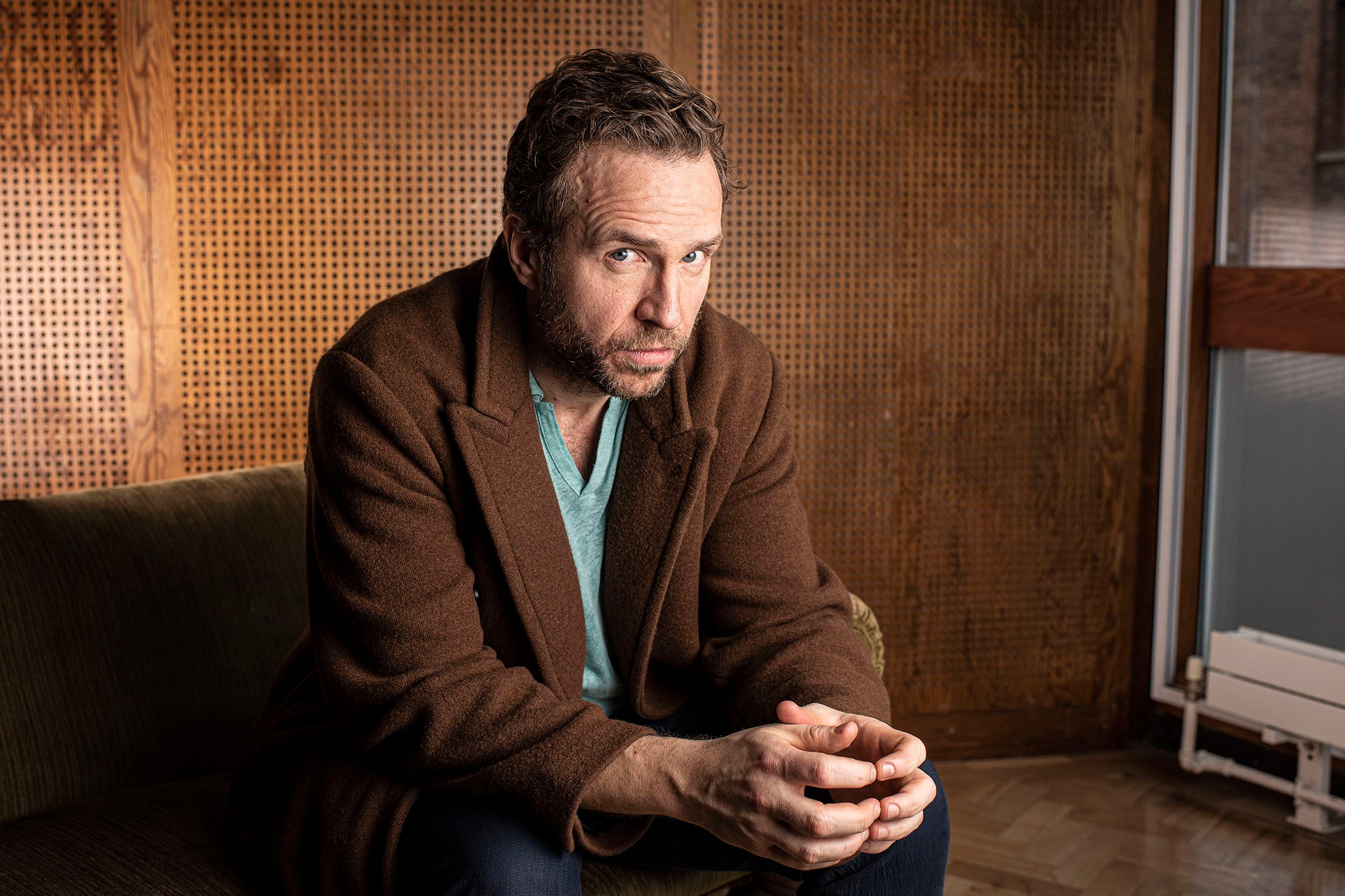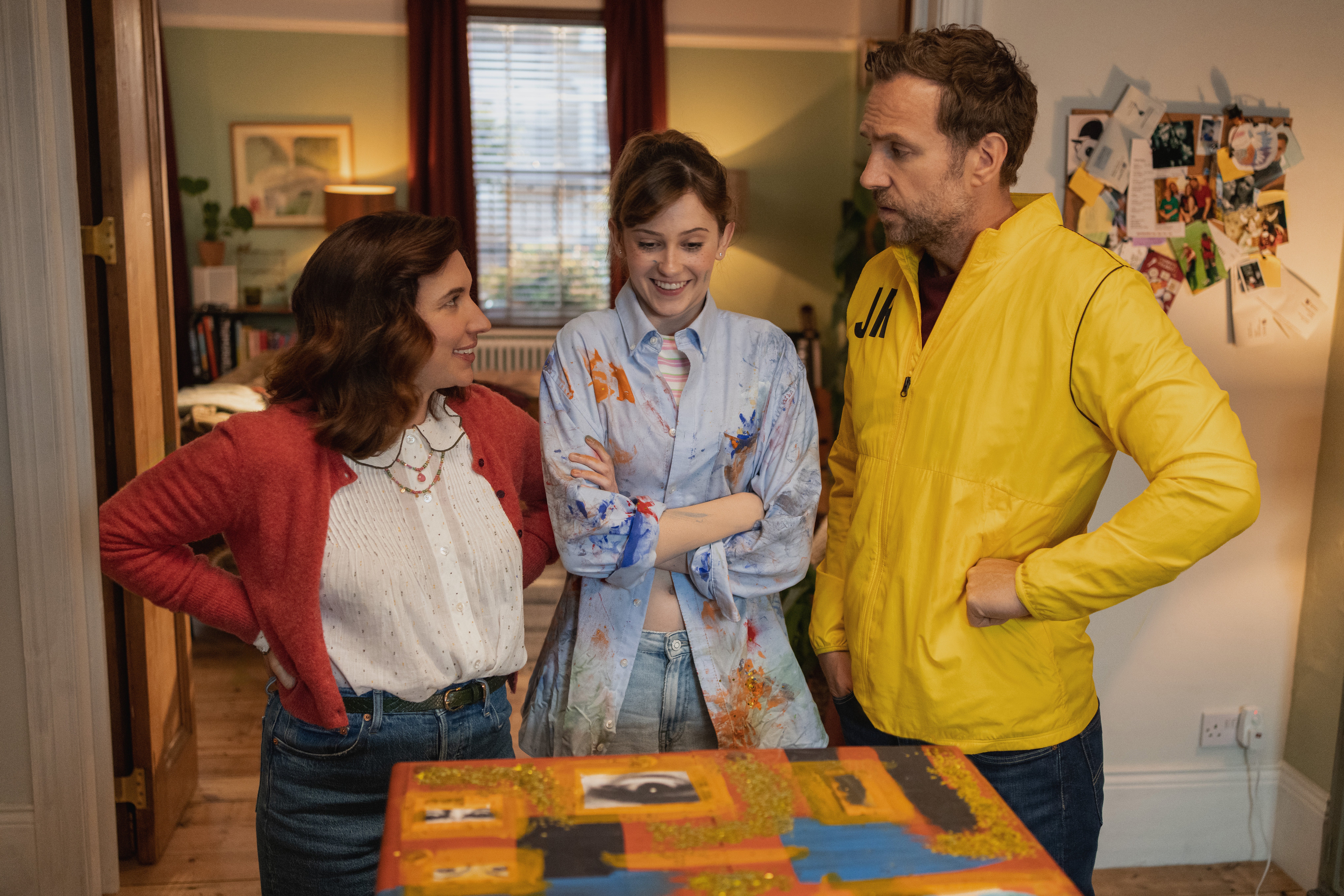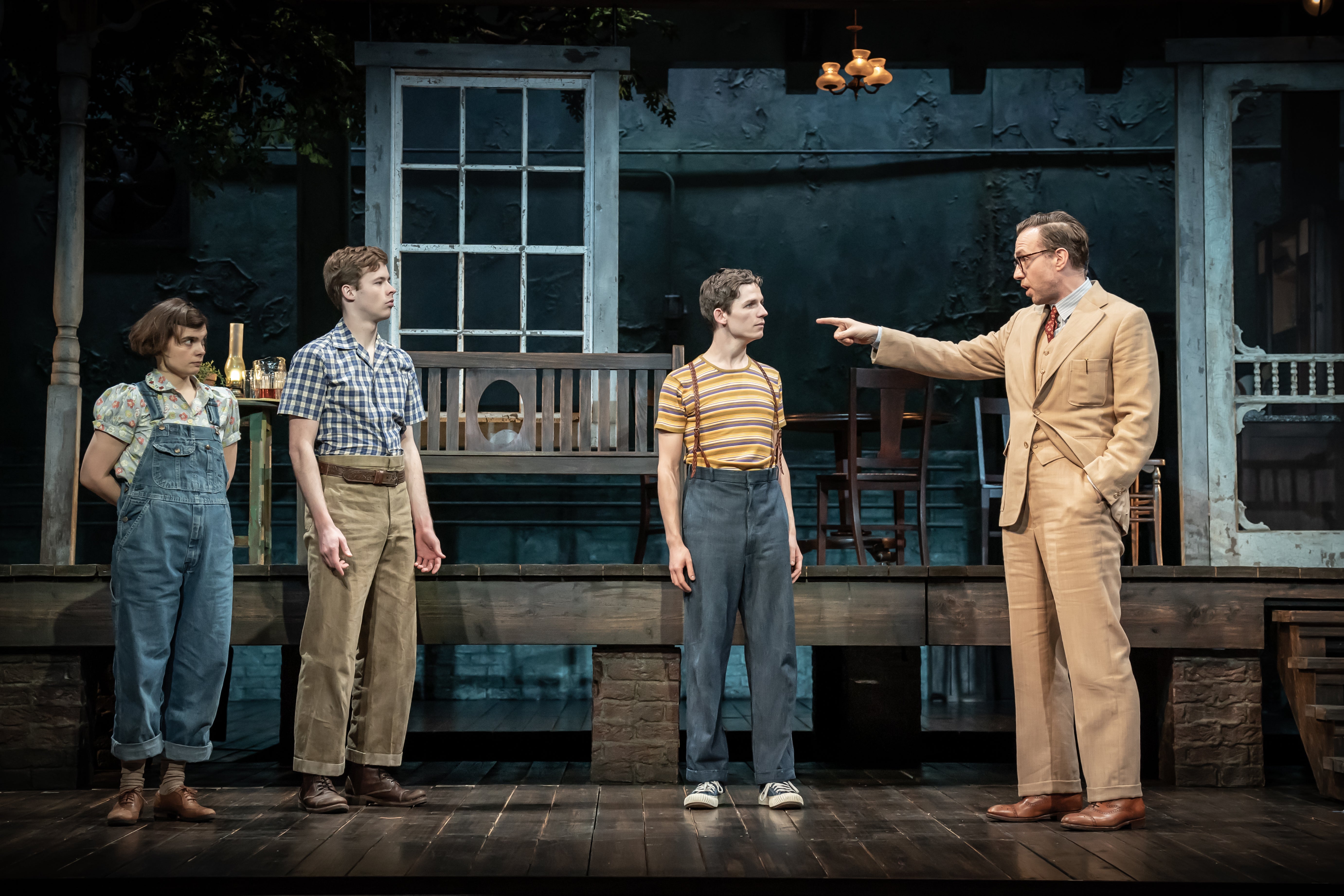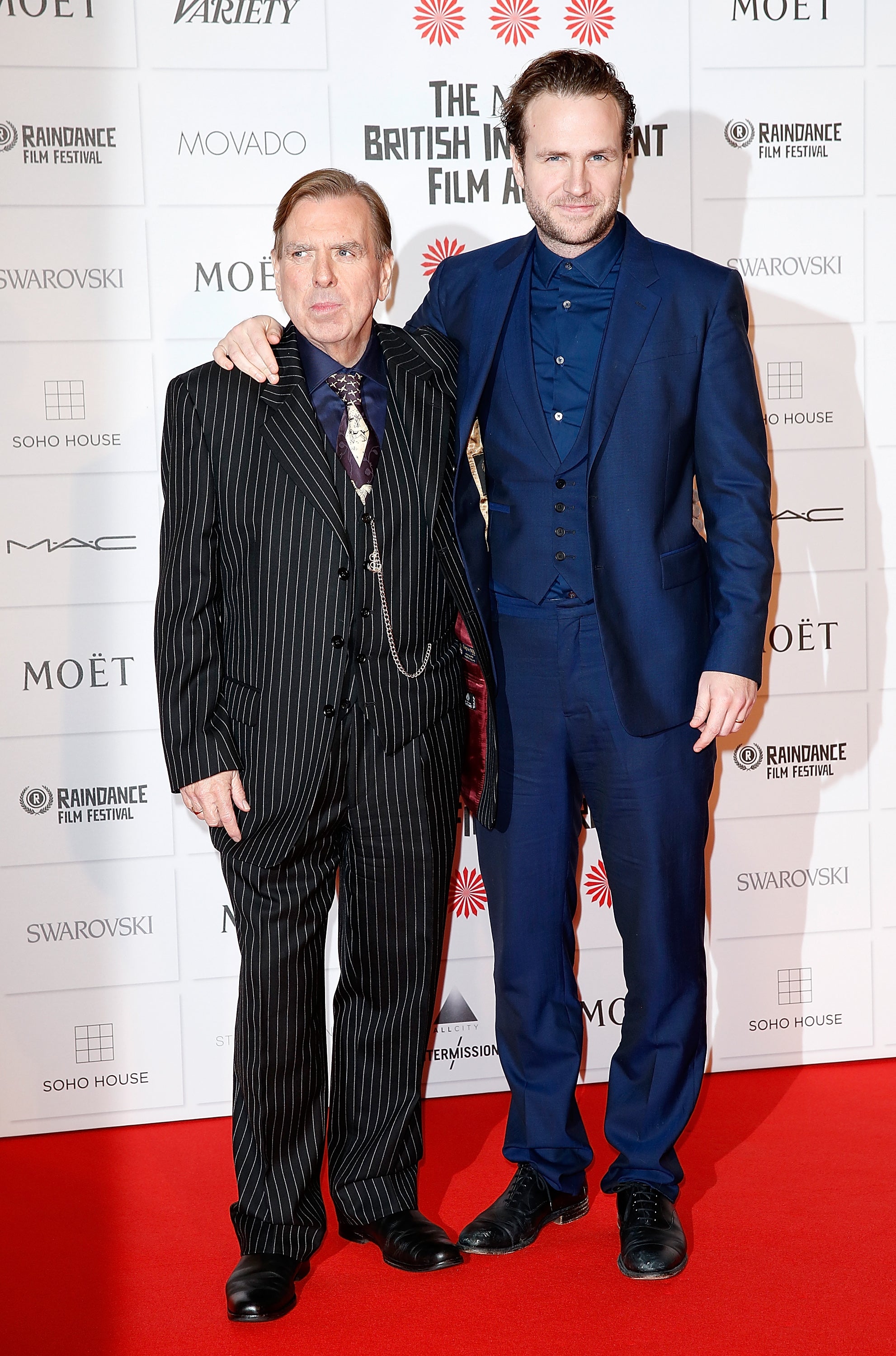Rafe Spall: ‘Men’s bodies in film give an unrealistic idea of masculinity’
The actor talks to Charlotte O’Sullivan about objectification, weight loss, the return of family sitcom ‘Trying’ and how acting with his co-star Esther Smith ‘elevates the show’ for him

Your support helps us to tell the story
From reproductive rights to climate change to Big Tech, The Independent is on the ground when the story is developing. Whether it's investigating the financials of Elon Musk's pro-Trump PAC or producing our latest documentary, 'The A Word', which shines a light on the American women fighting for reproductive rights, we know how important it is to parse out the facts from the messaging.
At such a critical moment in US history, we need reporters on the ground. Your donation allows us to keep sending journalists to speak to both sides of the story.
The Independent is trusted by Americans across the entire political spectrum. And unlike many other quality news outlets, we choose not to lock Americans out of our reporting and analysis with paywalls. We believe quality journalism should be available to everyone, paid for by those who can afford it.
Your support makes all the difference.Rafe Spall is talking about love. “I’m lucky enough to know what love feels like,” he says, “because I’m a parent. There’s a line in Wuthering Heights – I’m paraphrasing, obviously – where Heathcliff says to Cathy, ‘Don’t you love me?’ And she says, ‘I don’t love you. You are me. I am you.’ When I think about my children, I think about that, a lot. It’s that sort of indescribable love.”
He’s on video call today to discuss the fourth series of the Apple TV+ sitcom Trying, in which he stars as Jason, a laidback Londoner raising two adopted kids with his gorgeously het-up wife, Nikki, played by Spall’s real-life girlfriend, Esther Smith. Big news: Spall and Smith have just announced they’re having a baby.
Having played a couple on screen since 2020, the pair got together 18 months after Spall’s divorce from the actor Elize du Toit (Spall and du Toit have three children together). The new baby will be Spall’s fourth and Smith’s first. The 41-year-old actor is, of course, very happy. But, understandably, he wants the focus of this interview to be on the series, rather than his private life.
When he first appears on my screen – wearing glasses and a chunky jumper – Spall has the air of a teacher who fears his dim-witted pupils could, at any second, run amok. He frowns. He crosses his arms. He’s determined to set boundaries. But he can’t help getting excited when discussing the beauty of two people “becoming each other’s muses” (he practically falls off his chair during a discussion of Jeff Buckley’s “All Flowers in Time Bend Towards the Sun”). He’s found his muse and her name is Esther.
Spall describes Smith as “a deeply empathetic, sympathetic, beautiful soul... funny and bright and warm and kind”. He later emails to say the great joy of Trying, for him, is “acting with Esther. She is what elevates the show. She’s one of the most gifted actors of her generation.”
Spall is obviously more famous than Smith, yet he is rarely spoken of in the same breath, say, as Tom Hiddleston, Eddie Redmayne or Andrew Garfield.

Everyone knows Rafe’s got range. He can be plausible and frankly terrifying when playing ruthless villains (as he was in TV shows The Shadow Line and The English). He’s just as good when called upon to be quietly commanding (he crushed it, on stage, as Atticus Finch in To Kill a Mockingbird) or volcanically addled (Spall was riveting playing all the roles in state-of-the-nation, one-man show Death of England just before Covid struck).
What’s missing is that game-changing film role. From delivering the unforgettable line “I was totally munted last night” in Shaun of the Dead, to donning red livery to play the Queen’s butler in Spielberg’s The BFG, to capturing the Wall Street smarts of real-life trader Danny Moses in The Big Short (alongside Jeremy Strong, Ryan Gosling and Steve Carell), Spall invariably brings something special to a wide variety of films but has never been the central focus of a brilliant and/or wildly successful movie.
Of course, he had a big-ish part in the 2011 version of David Nicholls’s novel, One Day, which was, technically, a smash. Who can forget Spall’s turn as Anne Hathaway’s sort-of love interest, the poodle-haired Ian?

Watch Apple TV+ free for 7 days
New subscribers only. £8.99/mo. after free trial. Plan auto-renews until cancelled

Watch Apple TV+ free for 7 days
New subscribers only. £8.99/mo. after free trial. Plan auto-renews until cancelled
Spall cringes when I say he’s fab as the woefully bad stand-up comedian – the one thing about the film that’s as edgy as the Netflix series. “I haven’t seen it!” he yelps, “But the guy who plays Ian, his name’s Jonny Weldon, and he’s brilliant on social media. He’s really funny.” No one could accuse Spall of not seeing the amusing side of the situation. He giggles. “I’m really proud,” he says, “to be in the less successful adaptation of One Day. The one that didn’t capture the public’s imagination. That’s a real win for me, in my career.”

Spall has two films out next year. Rich Flu co-stars Spall’s dad Timothy, Rosamund Pike and Mary Elizabeth Winstead and is about a disease that targets the wealthy. The famously state-educated actor calls it “an extremely ambitious allegory that I hope will resonate” and says it provided him with “artistic fulfilment” and was enjoyable to make. Then there’s action drama William Tell, which revolves around the 14th-century crossbow ace from Switzerland. Spall, in flashbacks, plays a 12th-century crusader who mostly charges around, sans shirt.
Spall recently wrote an article for men’s style magazine The Rake in which he explores the ramifications of being cast as the sort of dude who takes his top off to reveal “honed breasts”. Having got in shape for the part, Spall goes to a suit fitting at a fancy tailor’s, where his “wobble-free” body is measured and, tacitly, applauded. A few months later, Spall discovers his new suit doesn’t quite fit because, as soon as the shoot was over, the actor junked his “starvation” diet and went back to snacking on crisps.
It’s a beautifully written piece that made me laugh out loud. When I mention this, Spall beams and says, “Oh, good!” But it does make the business of being an actor sound farcical. Spall has talked, in the past, about the painful years of his adolescence when he didn’t like how he looked. Does he think it’s a problem that male actors are now being objectified as much as their female counterparts?
“I think the objectification of women is obviously and unbelievably clear,” says Spall, gravely. “It’s a desperate issue that has been addressed and needs to be addressed far more. I’m appalled by it. I’m appalled by the way women are described in tabloids, the way their bodies are objectified. I can’t really talk to you about it. I’ve not lived it, because I’m not female – but I can see it. As a male actor, I also know there is a great deal of pressure to look a certain way. Absolutely. And I’ve had pressure put on me, before, to look a certain way. I can tell you categorically that we fetishise weight loss in men in a way that is not good.”
This is about more than weight loss, though – it’s about the pressure to have a perfectly toned torso, and what’s striking about the article is the way Spall talks about his body as if it were an object. “Of course my body’s an object!” he shoots back. “As an actor, your body is an object. You use your body to act. And if you’re asked to play a specific role and you get told by the production company that a trainer has been provided for you, you feel an obligation to look as good as you possibly can. And for me to have a certain body type requires great sacrifice and calorie deprivation.”
Part of what makes everyday life fun and sensual is the act of eating and enjoying life
Spall exhales. “If you ever see anyone with their shirt off, they have trained six times a week, probably twice a day and had a nutritionist. And it will give [anyone watching] an unrealistic idea of masculinity because it’s actually unobtainable. If I’m supposed to be very, very thin and muscular, the chances are I’ve dedicated a lot of energy into creating that look. It doesn’t just happen. So it’s not necessarily healthy.”
Some readers may be wondering why Spall punishes himself by taking on such roles in the first place. Why sign up for William Tell if, as he’s already stated, one of his priorities is “enjoyment”? “It serves a purpose,” he says. “I’m playing someone from the 12th century. So that was applicable. We had a different diet in the 12th century than we do now.” His shoulders slump. “I just don’t want people to look at me and think, ‘Oh, that’s what I should look like, as a man.’ Part of what makes everyday life fun and sensual is the act of eating and enjoying life. When I look a certain way, ie very muscular, it means I’ve done very little eating and very little enjoying of life.”
He says there are no such pressures on the set of Trying because Jason is “an everyman. A relatable sort of person.”
Spall doesn’t mean that Jason is “average” (it’s still rare for adoptive parents to be the stars of a UK family show). Spall says that what he likes about Trying is its message that “there’s no one way to define family”. If anything, the fourth season of Trying improves on what’s gone before. Though the final two episodes contain some frankly implausible twists, the dialogue is consistently and wickedly raw. Case in point: at a football match which pits underprivileged, adopted kids against their coddled, middle-class peers, Jason (in football coach mode), yells: “Let’s smash these two-parent w***ers to bits!”
Does Spall worry that certain sections of the press will see this as a “woke” assault on nuclear families? He rolls his eyes. “My job is to make the joke land. I don’t think about its political ramifications or over-arching meta-implications.” He views the show’s stance as non-combative. “Trying is a celebration of blended families, adopted or fostered families, or friends that have created families. It’s saying those kinds of families are as valuable as what we would consider to be, quote unquote, normal. Equal to, not better than.”
Spall is right to flag Smith’s excellence. As authentically warm as Kelly Macdonald, as irrepressibly innocent as Richard Beckinsale, she’s a screwball tragi-comedy queen who ensures that we care, desperately, about what happens to Midlands-born “bag of tears” Nikki. But the whole cast are cracking, with Scarlett Rayner, as Nikki and Jason’s vulnerable and wayward teenage daughter, Princess, particularly jolting.

“Scarlett is terrific,” agrees Spall, “And extremely dedicated. She was immensely prepared which I found really heartening. I recently saw her in Beautiful Thing at the Theatre Royal Stratford [East] and she was an engaging stage presence, too. Which again is really heartening to me because when I was her age, all I wanted to do was be on the stage. I feared a little that, with the boom in streaming and a golden age in TV, young actors wouldn’t see the stage as the pinnacle I once did. Seeing Scarlett be so brilliant in that play was reassuring!”
Another thing he likes about the show is the way it puts a spotlight on the Midlands accent. Smith was born and raised in the West Midlands, while the sublime Sian Brooke, who plays Nikki’s acidic sister, Karen, is from Lichfield, in Staffordshire. “Yeah, the Midlands accent, you don’t hear it enough on television,” muses Spall, “it’s one of the great things about Trying that Esther and Sian Brooke give us that gorgeous accent on television.” He shrugs, happily. “But I’ve grown up around it. So of course I love it. My mum is from Cannock.” The small Staffordshire town is 10 miles north of Wolverhampton.
Everything about Trying is accessible and inclusive, although the fact that it is on Apple TV+ presumably means that fewer viewers will see it than a comparable show on BBC One or Netflix. Do Spall’s friends say, ‘Sorry, Rafe, I can’t afford to subscribe to another channel?’ and if so, does he feel their pain? For perhaps obvious reasons, Spall elects not to answer that question. Will there be a season 5 of Trying? “We don’t know,” he replies, “I really hope not. I mean, I hope so! I love doing the show so much and I’d love to do it for as long as they’ll have us.”
Spall isn’t one to downplay his feelings. He says he cries all the time, “Every single day. Every. Single. Day.” Last year, he saw a version of Uncle Vanya, at the Duke of York’s Theatre, in which Andrew Scott (“a great friend of mine”, Spall admits, bashfully) played every part. “It was extraordinarily moving,” says Spall. “At the end, when [Vanya’s put-upon niece] Sonia has just been rejected by the doctor [with whom she is besotted], she has this amazing speech where she says that when we look at the balance sheet, at the end of our life, if we can say that we tried, then we done alright... That really jumped out at me... I physically cried. In the theatre.”
To put it mildly, he’s not a stern, Victorian-style dad. His eldest, 13-year-old Lena, is the reason Spall has an opinion about One Day. “I really haven’t seen it. But d’you know what? I walked in on my daughter, watching some of it.” Some parents might have been bothered by the fact that One Day features partial nudity and drugs. Spall? He was just blown away by the soundtrack. “It’s terrific!” he says. “They use a Cocteau Twins song [‘Iceblink Luck’]. I’m a massive Cocteau Twins fan and you don’t hear a lot of them, especially stuff from that album, Heaven or Las Vegas.” He’d love to meet The Cocteau Twins’ singer, 60-year-old Elizabeth Fraser. “She’s unbelievable.” Spall shakes his head in wonder. “A goddess! She’s my hero!”
His other hero is Kate Bush and he’s especially fond of “Moments of Pleasure”, from her 1993 album The Red Shoes. “It’s about all the people in her life who died and it’s really beautiful. There’s a line in it where she says, ‘Here come the hills of time’, which I’ve always loved and even thought about getting a tattoo of.” He wants the song played at his funeral. “I’d definitely have that one,” he adds, wickedly, “just to get everyone crying.”
The PR says time’s almost up. Some quick Q&As.
What poets does he like? Wendy Cope and Hilaire Belloc (he’s especially keen on the latter’s “Tarantella”). Will he make any more films with Edgar Wright (after Shaun of the Dead, he was in Hot Fuzz and World’s End)? “I’d bloody love to. Edgar is a friend and I hold him responsible for a large part of my career!”
What’s his take on Taylor Swift? “I am obviously an admirer of her talent. I was really interested to hear she’s a fan of The Blue Nile. She mentions the song ‘The Downtown Lights’ on her new record, which is one of my favourite songs of all time, so she obviously has great taste! Also my daughter thinks she is wonderful.”
For Spall, everything comes back to children. He’s not pushing family values, just placing huge value on family. The show he’s promoting pulls off the same trick. Hooray for season 4 of Trying. Roll on, season 5.
‘Trying’ is available to watch on Apple+ from 22 May
Join our commenting forum
Join thought-provoking conversations, follow other Independent readers and see their replies
Comments